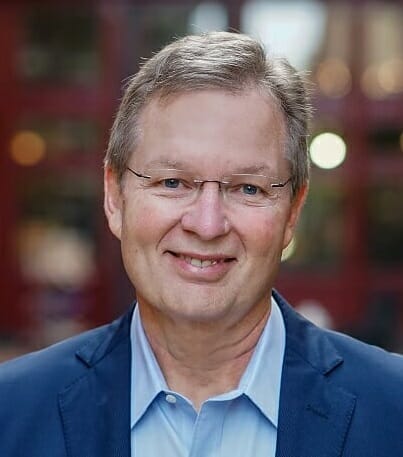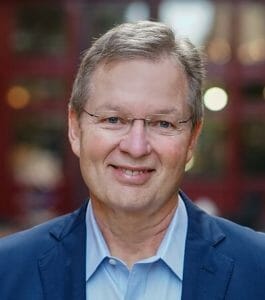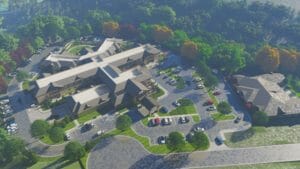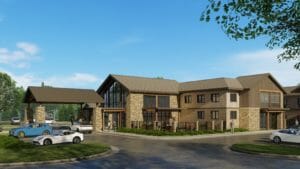

What do post-acute care centers look like in a post-pandemic world?
I have been in post-acute healthcare since 1995, when I first operated a traditional “nursing home.” Back then, they were typically smaller places with very little natural light and nearly all long-term residents. So much has shifted since then.
Hospitals need us to take patients faster. These patients are sicker, with more complex and diverse needs. There is a greater focus on therapy-to-home capabilities. Patients and families demand and deserve modern-day accommodations of comfort, technology, communication and care.
Then came COVID-19. The pandemic catapulted the need for “skilled nursing” providers to reinvent the model. It put infection control and each patient’s emotional health and connection to their community at the forefront. It changed the means by which we communicate with our patients and their families. Least surprising, but most challenging, it changed our thinking about the semi-private room. The semi-private room, which was the rule when I started working in skilled nursing must, I believe, quickly become the exception.
In October 2020, with the pandemic persisting, Stonerise was awarded a unique opportunity to construct a new transitional care center in Summersville, WV. The project, offered by West Virginia University Medicine, was timely because it allowed us to implement the lessons learned throughout the pandemic and update our skilled nursing model. During the design process, we strategically considered how to best construct a new center that will protect against future infectious disease outbreaks while optimizing the patient experience and health outcomes.

The new center, Stonerise Summersville, is more than 70,000 square feet with 90 all-private patient rooms, each with a private bathroom attached. Now under construction and set to open next year, it may be the first transitional care facility in the country – most certainly, in West Virginia – to reflect pandemic-related learnings from the ground up. It will serve short-term and long-term transitional and skilled nursing patients, as well as hospice patients in dedicated hospice suites and Alzheimer’s patients in a dedicated, secure “neighborhood.” We will apply for a Certified Alzheimer’s/Dementia Special Care unit certification – making it one of 10 statewide and the third such Stonerise location with the certification.
The center is thoughtfully designed with multiple small gathering spaces, more natural light and investment in four separate dining areas and four expansive outdoor spaces, including an outdoor therapy gym. It will be modern across all aspects, from amenities and technology to expansive common areas – all with the intention of optimizing patient and team member care quality and emotional health.
Each wing of the building is designed to be self-sufficient, so doors can be closed to separate sections of the building if needed and multiple access points are available for ambulances in case one section of the building is restricted. The central HVAC system includes a UV Light cleaning feature that is used to heat and cool common areas and cleans air before it comes into the building. We will also utilize a system that increases the number of air circulations per hour to decrease stagnant air.

From increased access points and HVAC innovation to a rethinking of communal, private, functional and flexible spaces for patients, their families and our team members, Stonerise Summersville will be a physical embodiment of what Stonerise has learned through the pandemic, synthesized with our guiding purpose of serving others through love. It is our template for future development. The design also factors in new industry regulations and our hope is that it will drive new industry regulations or at least, industry gold standards. We are excited to embrace and serve a new local community in our state very soon.
Now, we look beyond Summersville and how we apply these learnings to our existing centers that cannot simply be re-built or simultaneously renovated. Stonerise, like thousands of providers across the country, needs championing and support to retrofit our existing centers to meet the needs of the future, which are already here today. We are ready to move forward and hope that our partners are as well.
Larry Pack is the CEO of Stonerise, a company he founded in 2009. Stonerise is a network of transitional care services including 17 skilled nursing centers and eight home health agencies, helping patients in 58 counties throughout West Virginia and southeast Ohio achieve the best possible outcomes so they can get back to health and back to life. For more information, visit stonerise.com.
The opinions expressed in McKnight’s Long-Term Care News guest submissions are the author’s and are not necessarily those of McKnight’s Long-Term Care News or its editors.





